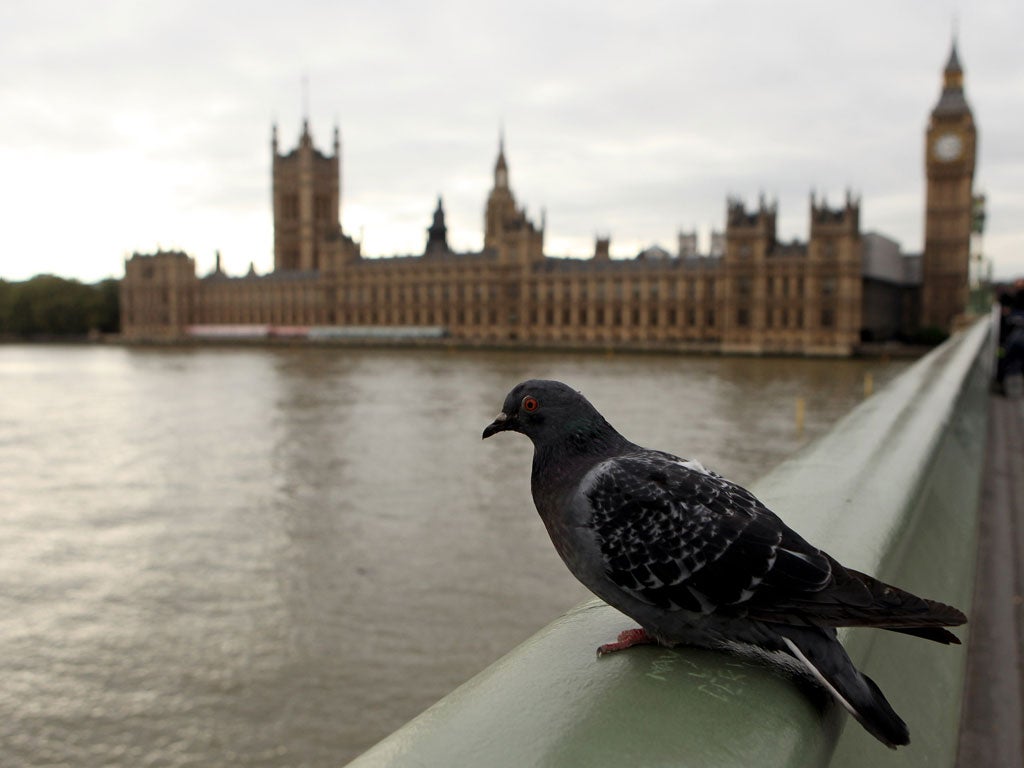Just what you need to start a coup? How MI5 plotted to use radio-controlled bomber pigeons

Your support helps us to tell the story
From reproductive rights to climate change to Big Tech, The Independent is on the ground when the story is developing. Whether it's investigating the financials of Elon Musk's pro-Trump PAC or producing our latest documentary, 'The A Word', which shines a light on the American women fighting for reproductive rights, we know how important it is to parse out the facts from the messaging.
At such a critical moment in US history, we need reporters on the ground. Your donation allows us to keep sending journalists to speak to both sides of the story.
The Independent is trusted by Americans across the entire political spectrum. And unlike many other quality news outlets, we choose not to lock Americans out of our reporting and analysis with paywalls. We believe quality journalism should be available to everyone, paid for by those who can afford it.
Your support makes all the difference.Rediscovered post-war diaries have shown that British spy-masters considered developing remote-controlled homing pigeons - perhaps to carry explosives.
Details of the scheme have emerged in the post-war diaries of Guy Liddell, then-deputy director general of MI5.
It seems the idea was discussed with Captain James Caiger, who ran the Army's pigeon loft after the war.
Liddell's diaries show that the Joint Intelligence Committee heard a presentation from Caiger, the army's pigeon expert.
He informed them that the homing instinct of the birds could be used to trick them into following a radio beam.
In an entry for October 3, 1946, Liddell described how Capt Caiger came to see him. "He is our pigeon expert. He is, in fact, the nearest thing to a pigeon that I have ever seen. He talks, thinks and dreams about them," he wrote.
"He has had pigeons since he was a boy and his father had pigeons before him.
"I asked him about the homing instinct. He said that the matter is quite unsolved.
"There is however, one curious fact, namely that in a sun spot year all pigeons go hay-wire.
"Sun spots are, of course, minute radio active particles thought how they affect the pigeons' homing instinct nobody knows.
"This gives some colour to the suggestion that pigeons might be able to home on an electric beam, in other words that you might have radio-controlled pigeons."
MI5 files previously released refer to plans to train pigeons to carry explosives and fly into enemy searchlights.
It was not until 2007, however, that scientists were able to perfect plans similiar to those mooted by Liddell.
Scientists at a University in China implanted microchips which plotted the birds' course by sending electronic impulse signals.
The diaries, released to the National Archives in Kew, make reference to a number of 'spycraft' ideas.
In February 1949 Liddell discussed impregnating papers with radioactive substances to set off an alarm if they were removed from a building.
Liddell wrote that he was told: "it is quite possible to impregnate paper, metal clips or ink with radioactive substance and to install either under the floor boards or in a door post, or under the ground outside an apparatus which will register if anybody goes out of the building with a secret paper so impregnated."
But snags would include health risks to anyone if the papers were left in a drawer, he noted:
"It would at the outset produce extreme lassitude and later a loss of blood counts.
"No serious harm would result if the papers were removed and the symptoms detected. To counter these ill-effects it would be possible to introduce some self-destroying material."
Join our commenting forum
Join thought-provoking conversations, follow other Independent readers and see their replies
Comments